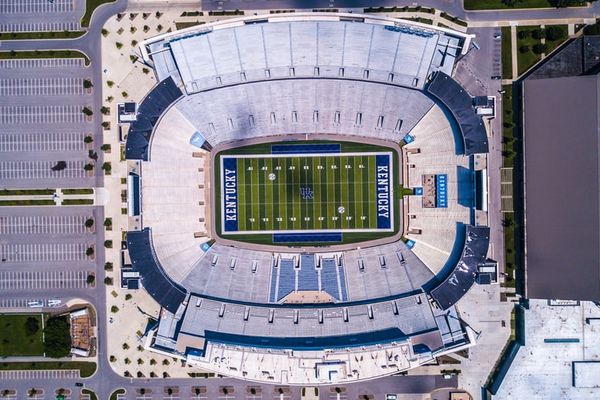To many, college football is a religion. Game days are divine, tailgates holy, and quarterbacks worshiped with a somewhat disconcerting zeal. In the early days of quarantine, it became a running joke that Southern states would abide by distancing guidelines only if fall football was jeopardized. Luckily for those whose devotionals contain buffalo chicken dip and colorful jerseys, the SEC ensured their precious game never faced threats. In doing so, they proved an all-too familiar point: America’s beloved sport is not just a game, but a business solely concerned with turning a profit.
The grim realities of the pandemic that ailed hundreds of businesses around the country miraculously avoided SEC football. It seemed as if teams were even immune to the perils plaguing the universities they represented. While colleges internally squabbled over allowing students back on campus, football preseason was in full swing. Voluntary practices were the norm. After all, these players are essential workers whose trade entails rushing yards and selling tickets—and making millions of dollars for the universities they represent.
Given the billions in revenue dependent on these programs’ successes, it is unsurprising that the players’ returns were portrayed as successful. After all, an outbreak could have raised questions about the upcoming season’s validity. Therefore, programs worked extremely hard behind closed doors to prevent positive cases but publicly acted with a nonchalant demeanor that communicated a “see, no problem here” mentality.
Take the Clemson Tigers as an example: on June 30, the program had 37 positive cases. Since July 10, they have had one. These statistics are not a result of the virus’s low-infection rates, but rather due to programs’ extensive testing capacity—players are tested at least once per week as a prevention measure. In a nation where a shortage of tests remains a constant concern, these sorts of protocols show just how valuable players are to these institutions, even if they are not willing to pay them.
The programs’ low-case results prove nothing more than the fact that money can buy safety. Player-positivity rates were low because teams were fortified to an unrealistic extreme. They were monitored, regulated, and provided for to a point that they have been effectively sheltered from the pandemic.
Football programs bought their players an advantage during this health crisis. That is not a condemnable act. As I pointed out before, football is a business, and businesses will do whatever it takes to turn a profit.
However, their quest for a positive bottom-line does carry ramifications. Because of programs’ success in protecting their players, they have popularized an idea that games are safe to attend. Fans see no issue in gathering with thousands of other screaming, susceptible individuals, because football has donned a sort of untouchable reputation. And that is exactly what programs want, as fans equal money.
However, fans are not privy to the same resources as the players, and therefore will not be “immune” to COVID-19 in any similar manner. Sure, programs have taken steps to ensure the situation in the stands is less dangerous, but none are as strict as the regulations on the players. People will be seated in pods and spaced appropriately, but there is nothing to prevent migration between pods. Tailgating has been banned, yet the enforceability of this is laughable. Contact-less ticketing has become a norm, but there is nothing protecting attendees from the multiple infection points they will encounter as a result of their trip: the gas station, restaurants, hotels, etc. The precautions taken by schools are merely permission slips for them to wave as fans gleefully congregate and spread the virus.
Consumer exploitation—that is what these programs are engaging in. They are luring naive spectators to games all the while knowing that some will inevitably fall ill. Meanwhile, the ticket revenue reaped from the very event that ailed programs’ attendees will fund their state-of-the art testing regimes. Players will remain healthy, and therefore continue to present a façade of safety and draw fans, who will act as spreaders of a deadly disease and possibly become symptomatic themselves.
Though it is unfortunate that this billion-dollar industry prefers profit over morality, it is not shocking—greed is perhaps more infectious than COVID-19. I suppose this is all very fitting, as the nation’s favorite game has finally adopted the nation’s favorite form of exploitation.
